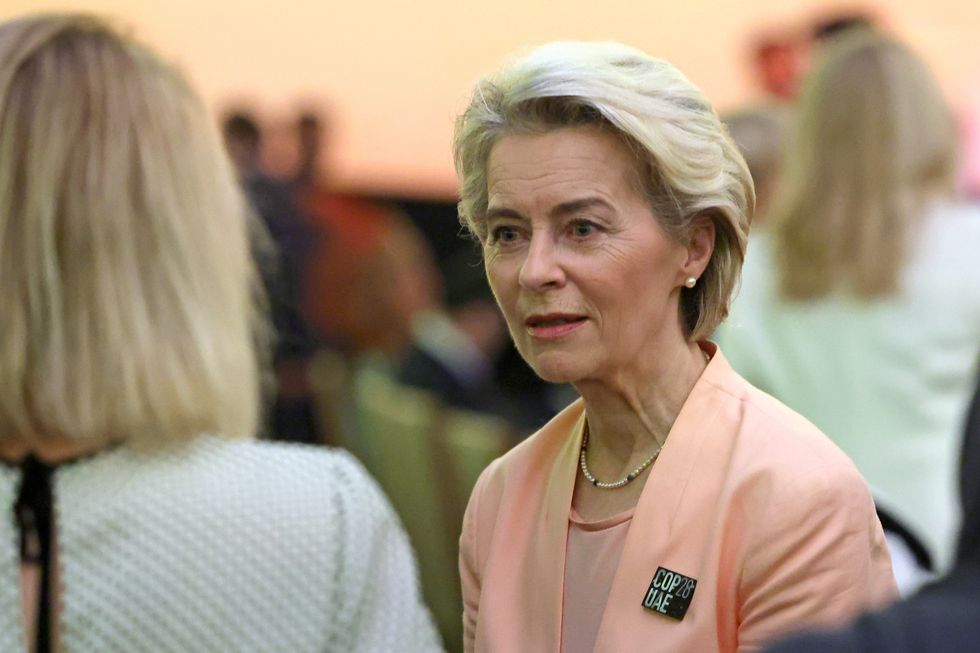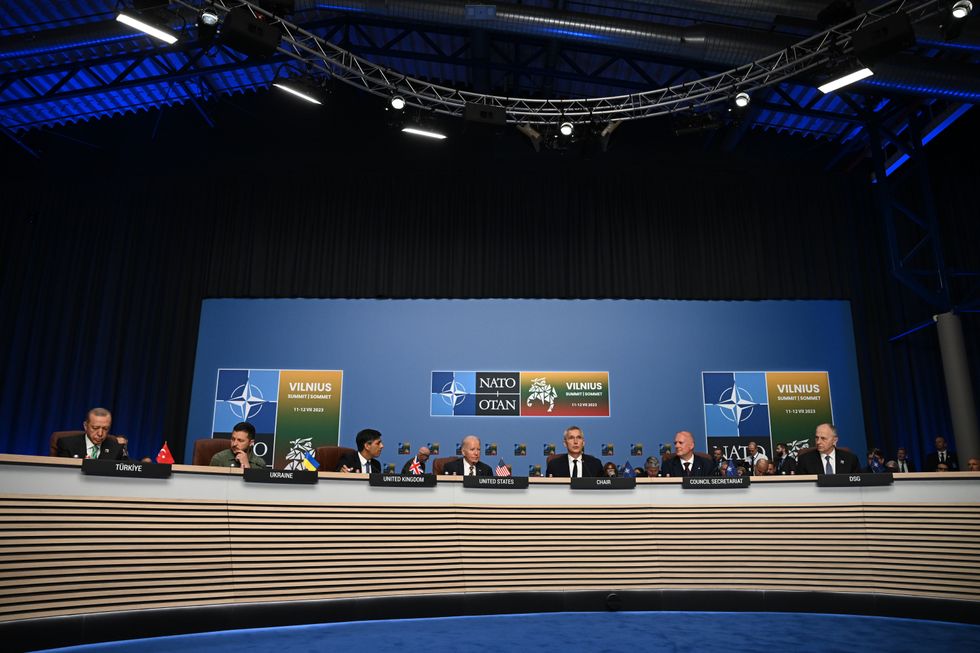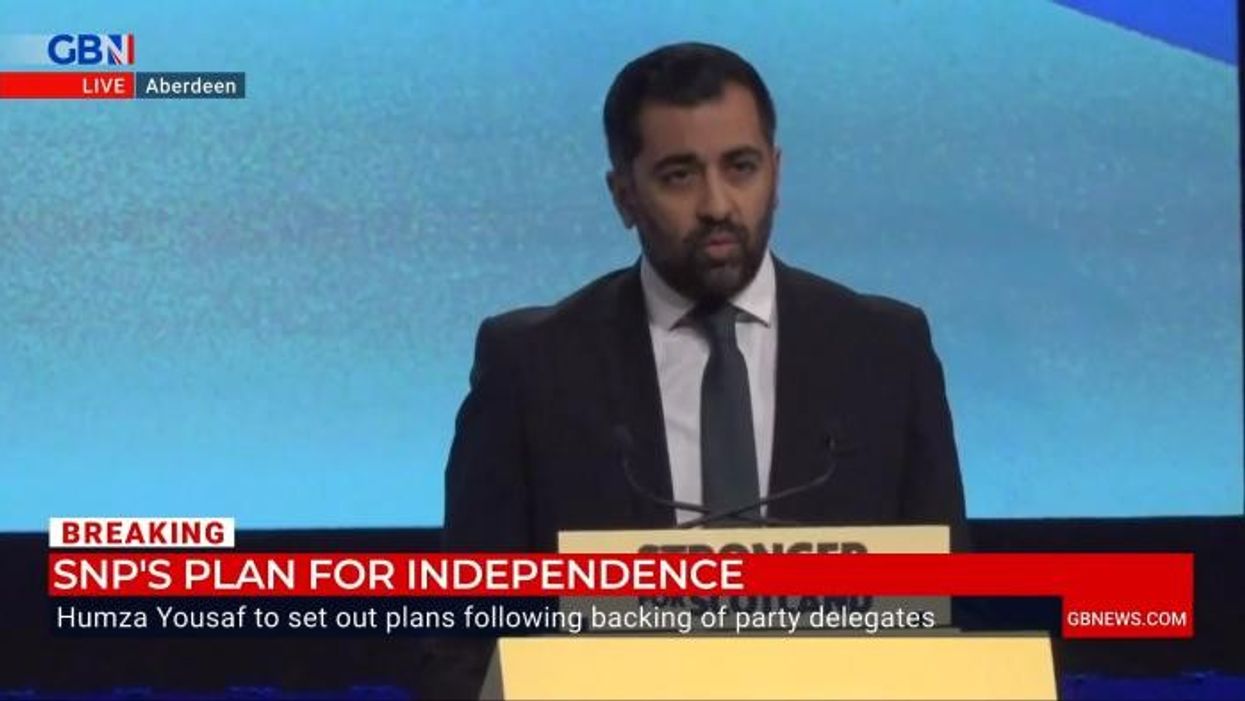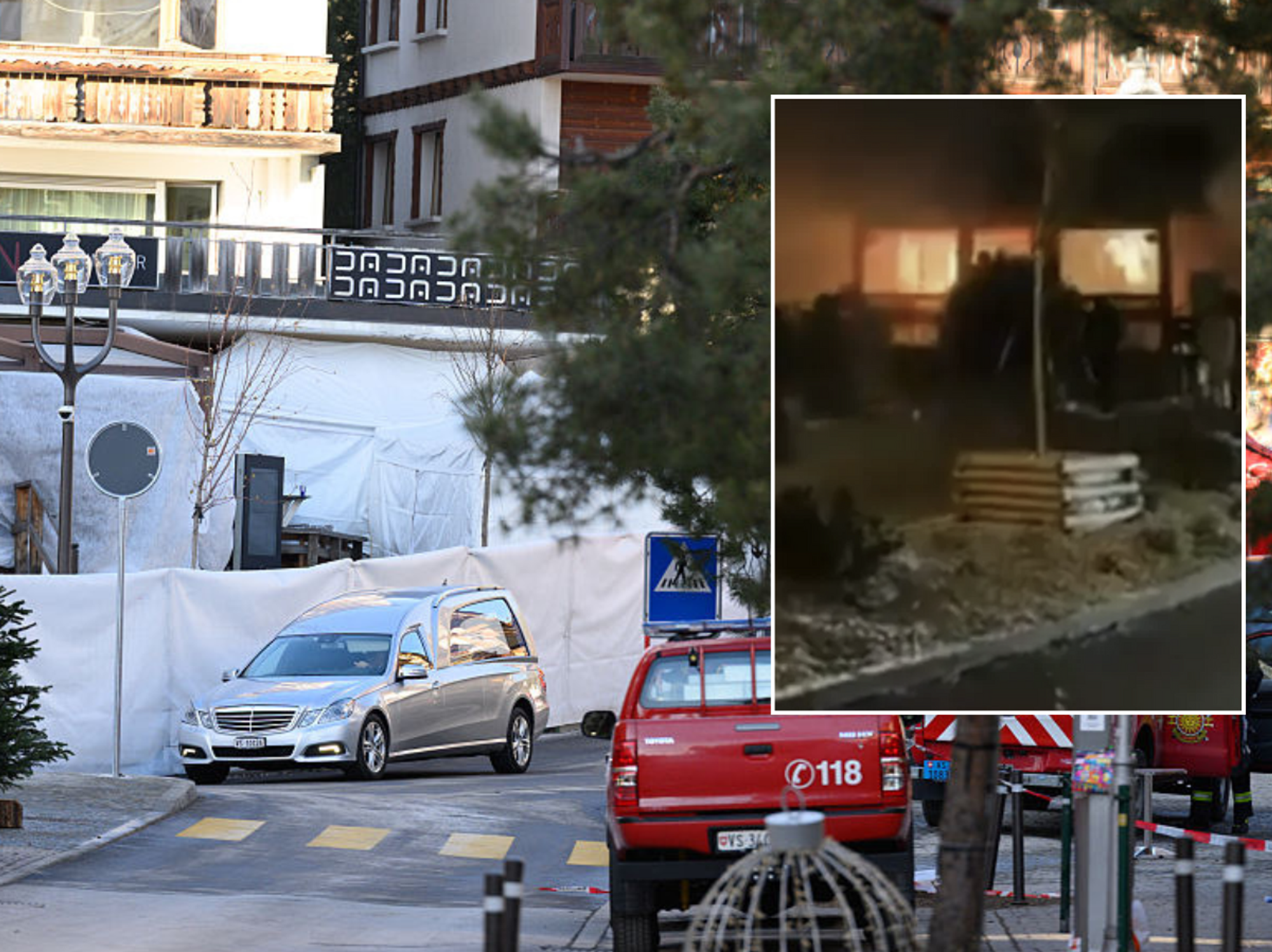Scottish Independence DE-BUNKED: A deep dive into the SNP's IndyRef2 claims

In this members-only feature piece, GB News digs into the SNP's vision for an independent Scotland and explores what it might look like in practice
Don't Miss
Most Read
Despite struggling approval ratings and a one failed independence referendum, the SNP's push towards a second vote on the issue is still going strong.
But what exactly would a vote to leave the UK look like? And how realistic is the image the SNP paints of an independent Scotland?
Here, we take a look at the Scottish government's own words in a deep dive through their Independence papers - a series of policy documents produced by the government which outline its vision for an independent Scotland.
Funded by the Scottish taxpayer, the 'Building a New Scotland' series aims to "give people information about Scotland's future" and outline "what independence could mean for you".
Twelve papers have been published so far, ranging from the economy and defence to climate change and marine issues, the papers are in-depth and far-reaching. But how realistic are the proposals?
Rejoining the EU
Rejoining the EU has become a fundamental part of Scotland's bid for independence. Given 62 per cent of Scotland voted to remain in the bloc, it is unsurprising that so many people north of the border feel anger over the decision to leave. A plan to rejoin also serves as a useful angle for the SNP to take when trying to persuade people to vote for independence - it can easily be used as a stark example of the wider UK being out of step with what Scotland wants.
The SNP's Constitution secretary Angus Robertson has dismissed Brexit as "disastrous", calling instead for "an alternative direction for Scotland which will detail our shared European values".
He added: "Both Labour and the Tories are happy to impose a disastrous hard Brexit on Scotland which the UK Government’s own fiscal watchdog thinks will cut national income by 4 per cent compared with EU membership – wiping around £100bn from the UK economy and leaving people on average earnings £1,300 worse off."
But how realistic is the plan to rejoin the EU? The SNP's policy of rejoining the EU feeds into many of its other policies - education, defence, economy and currency. But, unfortunately, there are key flaws with the plan.

Rejoining the EU has become a fundamental part of Scotland's bid for independence
|PA
The Scottish Government said it would use a "tried and tested" route to EU membership, relying on Article 49. But foreign policy expert Professor Azeem Ibrahim warned that Scotland, applying as an independent nation, will have issues meeting the criteria to join. He told GB News that Scotland would be forced to reduce its deficit from 12 percent to 3 percent in order to be accepted into the Eurozone, which he said would involve "drastic cuts" and "aggressive tax hikes". This, Ibrahim said, would have a "rolling effect" on the economy as it would cause "major taxpayers" to leave the country, adding: "That would shrink the tax pool considerably, it would have a cascading effect."
In addition to practical issues when it comes to Scotland's economy, there is also the problem of public opinion. Polling published last year showed that nearly 70 per cent of voters in Scotland would want an independent Scotland to rejoin the EU. But a YouGov survey from 2020 showed that only 18 per cent of people want an independent Scotland to join the Euro. While there are a handful of nations in the EU that have not joined the single currency, Scottish political analyst Anthony Salamone said Scotland would have to make a "good faith commitment to join the euro" as an "obligation" of EU membership - something that is likely to be a hard sell for Scottish voters.
Economy
The EU unsurprisingly plays a central part in the SNP's vision for an independent Scotland and its economy, with the party arguing that rejoining the bloc and opening Scotland up to the world's largest single market, seven times the size of the UK, the nation could "become an exporting powerhouse". It also pledged to harness Scotland's "vast renewable energy potential", saying the country - "free from the damage of Brexit and disastrous Tory governments" - would be able to build a "more prosperous, greener and fairer society".
The SNP has used examples of similar, neighbouring EU countries to support its vision for a bolstered independent economy - arguing that similar countries have national incomes on average £14,000 per person higher than in Scotland. Constitution Secretary Angus Robertson said that independent countries are "wealthier and fairer than the UK, so with all our resources and talents why not Scotland?" The SNP has previously cited Nordic countries as an example of similar, prospering nations.
But in an explosive intervention last weekend, former SNP adviser Professor Mark Blyth hit out at the claims, saying that making such a comparison is "simply not true". Blyth, who previously sat on the Scottish Government's advisory council for economic transformation, gave a damning assessment of the SNP's plans for an independent economy, saying: "You’re a periphery part of a small free trade zone called the United Kingdom.
You have thousands of micro-enterprises that trade with each other and trade in the United Kingdom. You have hardly any international trade in comparison to actual, genuine small economies, you have no global champions at scale in the way that they do in Scandinavia and other places."
Speaking at a nationalist economics festival in Dundee over the weekend, Blyth said that Scotland needs to ensure it has a robust economy to back up a new currency or risk becoming a “mini Argentina”. As a "small, open economy", he warned an independent Scotland would need to "balance your imports and exports over the long term or everyone thinks your currency’s s***".
However, Scottish nationalists have lent on the nation's oil revenues to make the case for an economically independent Scotland. Proponents of independence have argued that revenue from North Sea oil reserves strengthens Scotland's fiscal position. They've also argued that moving control away from Westminster towards Edinburgh would lead to improved decision-making. But those in opposition to independence have made the claim that an independent Scotland would inherit a weaker budget position than the UK as a whole - with a gap so significant that even oil revenues would not be sufficient to close the deficit.
Defence
When it comes to the defence of an independent Scotland, the government has outlined plans for its own armed forces, adding that it would provide "strong support" for veterans. It also says an independent Scotland will "only participate in overseas military operations that are lawful, approved by Scottish Ministers and authorised by the Scottish Parliament". But the most contentious aspect of the SNP's defence policy is their plan to join both Nato and the European Union - planning to "participate fully in the EU’s Common Security and Defence Policy".
Question marks arise on this when looking at their simultaneous pledge to remove nuclear weapons from Scotland entirely in the "safest and quickest way possible after independence". This goal is very likely to be incompatible with its plans to join Nato.
As Professor Ibrahim pointed out, the world "can't uninvent nuclear weapons". He claimed that without nuclear deterrents, not only will Scotland's own personal defence be compromised but it would also throw Nato's nuclear umbrella into "complete chaos". Without nuclear, Ibrahim warned, Scotland will be very unlikely to succeed in their bid to join Nato as an independent nation.
But what does Nato say? It describes itself as a "nuclear alliance", making clear that nuclear weapons are a "core component" of its "overall capabilities for deterrence and defence". Echoing Ibrahim's words, the alliance makes clear: "Nato is committed to arms control, disarmament and non-proliferation, but as long as nuclear weapons exist, it will remain a nuclear alliance."
Any attempt at nuclear disarmament in Scotland would also have profound implications for the the rest of the UK. Trident, the UK's nuclear deterrent, would be forced to undergo a completer restrcture - and could even be forced overseas, as key Trident assets - such as the Farslane submarine base, the warhead loading site at Coulport, and nearby testing ranges - are all located in Scotland or Scottish waters.

Nato has made clear that nuclear weapons are a "core component" of its "overall capabilities for deterrence and defence"
|PA
Migration
The SNP has claimed it would retain free movement across the UK and Ireland - but if Scotland succeeds in joining the EU, it would be almost impossible for there to be a free channel of movement between Scotland and the rest of the EU. While the UK has avoided a hard border with the Republic of Ireland, the motivation for that stemmed from longstanding concerns over maintaining peace in Northern Ireland. It is unlikely that there would be the political will to reach a similar agreement with Scotland. The Scottish Government has also admitted that there is likely to be a goods border between the UK and Scotland in the case of independence.
When it comes to the asylum system, the SNP has been fiercely critical of the Government's plan to send migrants to Rwanda. Yousaf described the Rwanda Bill as being the "most disgraceful piece of legislation in modern UK political history", demanding a "humane asylum system" alongside the creation of safe and legal routes for those seeking sanctuary. Given their response to the UK-wide attempt to crackdown on migration, particularly illegal migration, it seems likely that the SNP would loosen their controls on migration compared to the current policy pursued by Westminster.
However, it is not yet clear whether Scotland has the capacity to house increased numbers of asylum seekers. In January, Home Secretary James Cleverly wrote to Humza Yousaf to demand the Scottish Government "rapidly increase the asylum accommodation estate in Scotland", claiming the devolved nation doesn't take its "fair share" of asylum seekers. Data published last year showed Scotland was housing 5,086 asylum seekers out of a UK total of 112,294. That amounts to just 4.5 per cent of the total, while Scotland makes up 8.1 per cent of the UK population. However, the SNP blamed the Home Office, saying it is their responsibility to provide asylum accommodation. Regardless of who is to blame, it is clear the SNP would need to boost its asylum accommodation if an independent Scotland wants to have a more open policy towards those seeking asylum.
Education
The most recent independence paper, published last week, was centred around education in an independent Scotland. The plans say an independent Scotland will have an "enhanced approach to education and lifelong learning".
Education is one of Scotland's key devolved powers, so to understand what education would look like it's necessary to take a look at how it's currently going.
A key part of their plan for education in an independent Scotland is the continuation of free university tuition, making it a part of an "independent Scotland’s permanent constitution". Given free universities are something Scotland has stood by, in spite of fee rises across the rest of the UK, it seems unlikely that this policy would go anywhere any time soon.
As well as attempting to tackle child poverty to "give every young person the best chance possible of succeeding at school", the SNP's plan for independence also says it will build a "school education system that delivers excellence and equity for children and young people". But Scotland's current educational attainment casts doubt on this vision. Scotland's average reading score fell by 11 points to 493 at the latest Pisa scores, as compared with 2018. It also lags behind England’s score of 496. For maths and science, Scotland fell below average, scoring 471 and 483 respectively - another decline from 2018.
While the SNP has noted that Scotland currently does not have fully devolved powers over "the policy areas that would allow us to fully tackle child poverty", many of the other areas in its educational plan are already under the nation's control - casting doubt over how successful their plan to improve the education system will be.











